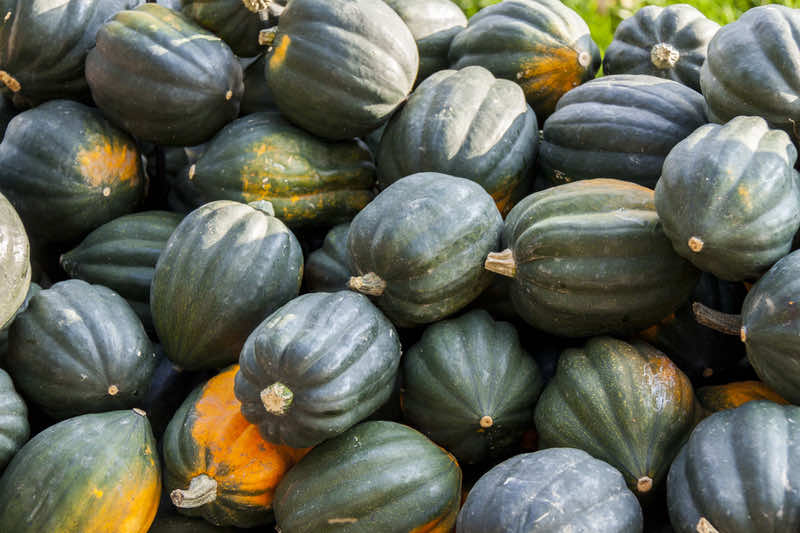Out of stock
Squash Seeds – Winter – Table Queen Acorn
Storage: Table Queen Acorn squash can be stored at room temperature for up to a month. However, it is best to store it in a cool, dry place, such as a pantry or cellar. Avoid storing the squash in the refrigerator as it can cause the flesh to deteriorate.
Preparation: To prepare Table Queen Acorn squash, start by washing the exterior with a damp cloth. Then, using a sharp knife, cut off the stem and cut the squash in half lengthwise. Scoop out the seeds and fibers from the center using a spoon.
Cooking: Table Queen Acorn squash can be cooked in a variety of ways, including roasting, baking, steaming, or microwaving. To roast or bake, place the squash halves cut-side down on a baking sheet and bake at 375°F for 40-50 minutes or until tender. To steam, place the squash halves cut-side down in a steamer basket and steam for 20-25 minutes. To microwave, place the squash halves cut-side down in a microwave-safe dish, cover with plastic wrap, and microwave on high for 10-12 minutes or until tender.
Serving: Once cooked, Table Queen Acorn squash can be served as a side dish with butter and salt or as an ingredient in soups, stews, and casseroles.
Preservation: If you have leftover Table Queen Acorn squash, store it in an airtight container in the refrigerator for up to 3-4 days. You can also freeze cooked squash for later use by cutting it into cubes or pureeing it and storing it in freezer-safe containers.
By following these caring instructions, you can enjoy the delicious taste and nutritional benefits of Table Queen Acorn squash throughout the winter season.
Good Neighbors:
Bad Neighbors:
price / options
$2.49
Out of stock

